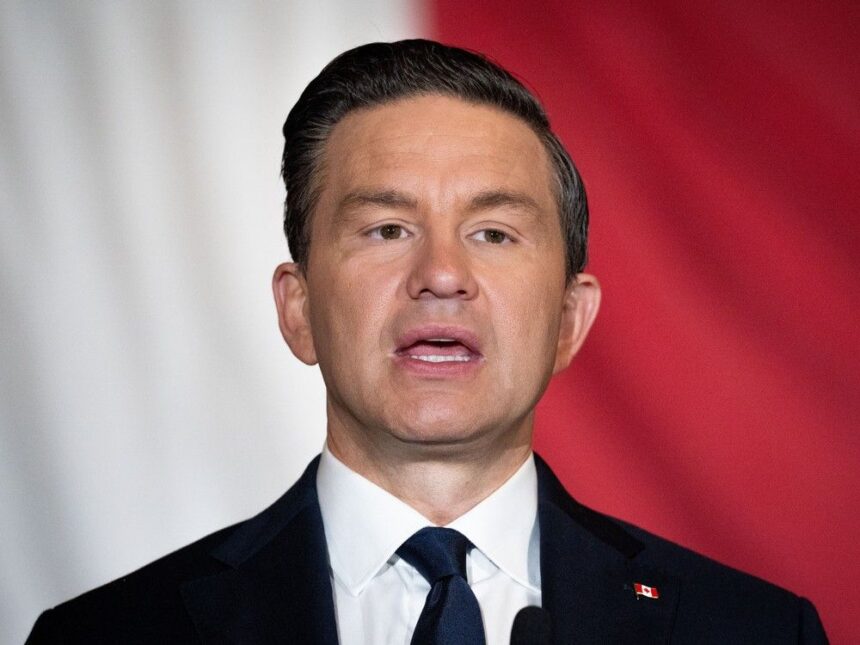In a forceful escalation of his law-and-order platform, Conservative Leader Pierre Poilievre called Monday for the federal government to officially designate the Bishnoi gang as a terrorist organization, linking the group to escalating violence across Canadian cities and international criminal enterprises.
“These gangs are terrorizing our neighborhoods, running extortion rackets against businesses, and conducting brazen daylight assassinations,” Poilievre declared during a press conference in Brampton, a city that has witnessed several gang-related incidents in recent months. “It’s time to call them what they are – terrorists – and give our law enforcement the full powers needed to dismantle their operations.”
The Bishnoi gang, which originated in India’s Punjab region, has established a growing presence in Canada, particularly in urban centers across British Columbia and Ontario. Intelligence reports suggest the group has expanded its criminal portfolio beyond traditional drug trafficking to include extortion, money laundering, and targeted killings against business owners and rival gang members.
A terrorist designation would significantly expand police powers to freeze assets, criminalize support activities, and prosecute gang members under Canada’s anti-terrorism legislation. Currently, only 78 organizations hold this designation in Canada, primarily religious extremist groups and international terrorist networks.
Public Safety Minister Dominic LeBlanc responded cautiously to Poilievre’s demand, stating that “such designations require thorough intelligence assessment and evidence that meets the legal threshold.” Sources within the Public Safety department indicated that while the Bishnoi gang is under active investigation, the formal designation process involves complex legal considerations.
Criminal intelligence experts suggest the Bishnoi network represents a new breed of transnational organized crime. “What makes groups like Bishnoi particularly dangerous is their international reach and sophisticated operations,” explained Dr. Helena Morgenstern, criminologist at Simon Fraser University. “They operate across borders with relative ease, moving people, weapons, and money through established networks.”
RCMP crime statistics indicate a 28% increase in gang-related homicides in major Canadian cities over the past two years, with approximately 40% of these incidents showing potential connections to international criminal organizations.
The Conservative leader’s proposal forms part of a broader “tough-on-crime” agenda he has championed since taking leadership of the party. His six-point security plan includes revoking parole for repeat violent offenders, establishing mandatory minimum sentences for certain firearms offenses, and increasing funding for border security operations.
“The Liberal government has spent years coddling criminals while everyday Canadians pay the price,” Poilievre asserted. “We need real consequences for gang members who think Canadian streets are their playground for violence.”
Critics, including civil liberties advocates, warn that terrorist designations must be applied carefully to avoid potential rights violations. “The threshold for terrorist designation must remain high and evidence-based,” cautioned Amira Elghawaby, legal analyst at the Canadian Civil Liberties Association. “While combating organized crime is essential, we must ensure our approach maintains constitutional protections.”
Numerous Indo-Canadian business owners have reported growing extortion attempts from gang members demanding “protection money.” Community leaders in Brampton, Surrey, and other areas with significant South Asian populations have expressed increasing concern about intimidation tactics targeting their communities.
As Canada navigates this complex security challenge, the fundamental question remains: can expanding anti-terrorism powers effectively combat organized crime without compromising civil liberties, or does Canada need to develop new legal frameworks specifically designed to address the unique threats posed by transnational criminal networks?














